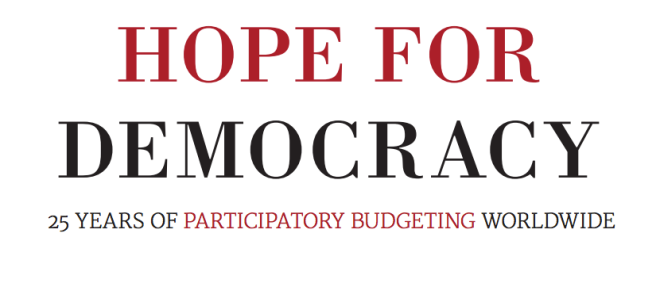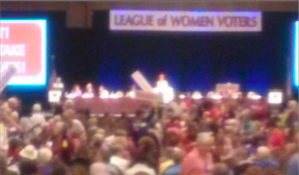To take on the empowerment gap we need to change the narrative of education
Harry C. Boyte
You know the drill. In the United States, political campaigns of every stripe put forward a plan, devised by experts, for what to do about poverty. Debates about these plans seem to be increasing in intensity as the elections of 2014 and 2016 approach.
After all these years and all those plans, the number of Americans at or near poverty is higher than in 1964, according to
Paul Thiessen, writing in the
Washington Post.
In 2011, forty three million Americans, 14 percent of the population, lived below the poverty level of $11,500. For Native Americans, the poverty figures were 27 percent, for African Americans, 26 percent, and for Latinos/Hispanics, 23 percent. And behind these grim figures are too many lives haunted by misery and powerlessness.
As Gary Cunningham and his co-authors observe in "
The Urgency of Now" in Foundation Review, there are close links between poverty and race. A recent Gallup survey found that 76 percent of Americans worry a great deal or a fair amount about those who do not have enough to eat or a place to sleep - more than worry about the size of the federal government, the possibility of a terrorist attack, or illegal immigration.
But the problem is misdiagnosed. The issue is not, as conventional wisdom would have it, the achievement gap. The achievement gap assumes the point is upward mobility -- how to give poor people, especially racial minorities, resources and remediation so that they can make it in a hypercompetitive, individualist, meritocratic educational system and society.
Poor people who resist this system experience an "empowerment gap" -- education is done to them. It's not something they do. They are labeled as failures.
What if the problem is the hyper-competitive, individualist education system itself, now largely a screening mechanism for personal advancement?
In
Unequal Childhoods, anthropologist Annett Lareau explores "the cultural logic" of poor and working class families compared to K-12 schools and educators. Educators, whether in suburbs or inner cities, are trained in what Lareau calls a "dominant set of cultural repertoires about how children should be raised," including highly individualist, competitive and achievement-oriented norms. In contrast, for working-class and poor families, there is an emphasis on sustaining relationships with family and friends.
Similarly , recent research by Nicole Stephens and others sponsored by the Kellogg School of Management at Northwestern, "
Unseen Disadvantage," shows that individualist achievement norms generate inequality through effects on undergraduates. "Doing your own thing," "paving your own path," and "realizing your individual potential" are familiar to middle and upper class students. But such norms are experienced far differently by students from poor and working class families, whose "expectations for college center around interdependent motives such as working together, connecting to others, and giving back," Stephens reports.
As first-generation college, poor and working class students are exposed to the message of individual success and independence, a strong social class performance gap emerges. They feel forced to make a choice between who they are, their cultural identities, support networks and the communities they come from, and the demands of individual achievement and success
This story-line has been long in the making. "Forget your past, your customs, and your ideals. Run, work, do, and keep your own good in mind," counselled an advice manual to immigrants coming into the country in the late 19th century, quoted by Herbert Gutman in
Work, Culture and Society in Industrializing America.
It has been getting worse. The College Board, sponsor of the SAT tests, has launched an initiative to make sure gifted children go to Ivy League schools. The media fixates on "ranking wars," in which colleges ratings depend on the number of students they exclude. Colleges compete for "the best students." The message is "up and out." Success means leaving behind your poor, immigrant, or cultural community.
But there are deep resources for raising questions about today's dominant story. A different narrative found expression in land grant colleges, religious schools, community colleges, historically black colleges and universities and tribal colleges. The
City College of New York, once seen as the nation's intellectual powerhouse, admitted all students from New York high schools -- and graduated 11 future Nobel Prize winners. The different narrative also found expression in community settings, from Chautauqua movements, religious education, and settlement houses to the citizenship schools of the civil rights movement.
This alternative narrative is the democratic genius of American education, based on "cooperative excellence," not "meritocratic excellence." Cooperative excellence is the principle that a mix of people from highly varied backgrounds can achieve remarkable intellectual, social, political, and spiritual growth if they have the right encouragements, resources, challenges, and calls to public purpose.
Today, there is growing evidence that middle and upper middle students and many others are looking for a different narrative.
The National Issues Forums and the American Commonwealth Partnership, launched at the White House in January, 2012, to revitalize the public narrative of higher education on the 150th anniversary of the Morrill Act creating land grants, organized a dialogue, "
Shaping Our Future," on the purposes of higher education in more than 100 communities. We found that most people have far richer views of education than do most policy makers and administrators.
Soundings of public opinion for a follow-up dialogue to be launched next January, "Higher Education and the Changing World of Work," also surface wide discontent with an overly narrow focus on "education for jobs" and making a lot of money as the highest goals of education.
In-depth research by David Hoffman of the University of Maryland Baltimore County, based on conversations with students who have been change agents, also shows that middle class students are highly skeptical about individualist achievement norms and conventional definitions of success. Students describe "an everyday world that often seems fundamentally synthetic, structured around falsehoods, hidden agendas, or scripts."
We may be ready to take on the empowerment gap. To do so we need to change the narrative of education in America.
Harry Boyte, director of the Center for Democracy and Citizenship at Augsburg College, coordinated the American Commonwealth Partnership. This blog is adapted from The Empowerment Gap, a study for Northwest Area Foundation.
 In case you hadn’t heard already, we wanted to make sure to tell encourage our NCDD members to consider attending the “Frontiers of Democracy” conference this July 16-18 in Boston, MA. Hosted annually at Tufts University, the conference has become an important venue for leaders in democratic thought and practice to gather to share ideas and network.
In case you hadn’t heard already, we wanted to make sure to tell encourage our NCDD members to consider attending the “Frontiers of Democracy” conference this July 16-18 in Boston, MA. Hosted annually at Tufts University, the conference has become an important venue for leaders in democratic thought and practice to gather to share ideas and network.






 (Dallas) I’m getting ready to present at the League of Women Voters’ annual meeting, which offers all the traditional trappings of a reform conference in the US: proud banners for each state’s delegation, canvassers standing at the door with flyers, tote bags with the League’s logo.
(Dallas) I’m getting ready to present at the League of Women Voters’ annual meeting, which offers all the traditional trappings of a reform conference in the US: proud banners for each state’s delegation, canvassers standing at the door with flyers, tote bags with the League’s logo.